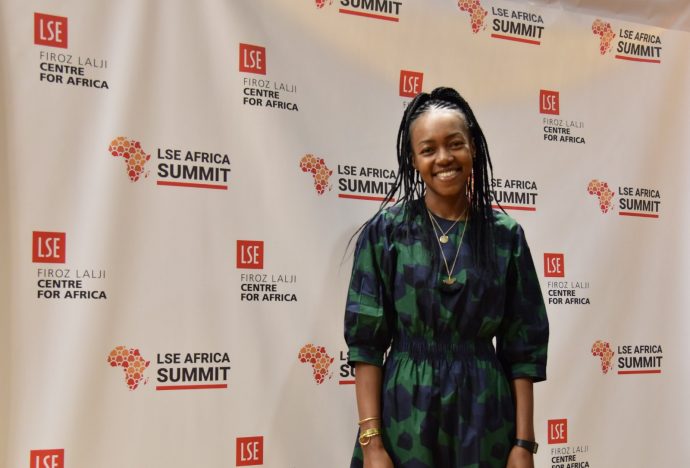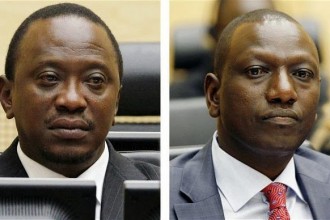Pele Energy Group is a power and development company based in South Africa and has been around for four years. Its goal is to contribute to structural change on the African continent, mainly by implementing change in the energy sector, first in South Africa. We talked to Fumani Mthembi, one of the founders of the group at the 2019 LSE Africa Summit. She highlights the group’s desire to grant opportunities to the youth of South Africa and impact the lives of black people in a positive manner through renewable energy. Their plan is to strategically advance structural change on the African continent by increasing energy supply and economic participation. Ms. Mthembi tells us more about this mission.
Pele Energy group has three faces: Pele Green Energy, Pele Natural Energy and Knowledge Pele. What is the purpose of this segmentation and how do these intersect to help you create your vision?
We identify ourselves as a power and development company. The purpose of the segmentation is really to manage conflicts. For Green energy and natural energy, we look to different types of investors. Green energy being about renewable energy, which is all the rage, it is much easier to find funding for it. The natural energy aspect is our response to the final phase of any fossil fuelled based energy provision that might still be happening today. Finally, Knowledge Pele is focused on research and development for the sector, spreading knowledge that is beyond ourselves in order to improve it. Despite these distinctions our single mission is to develop and operate renewable energy, as well as create powerplants alongside communities who will be able to operate them.
How did you get involved in the energy sector and what led you and your team to found Pele energy?
When we started the business in 2009, we had two main desires: one was to get out of the corporate rat race. We knew we couldn’t use our lives in service of people in the corporate world and we were committed to doing work that would directly have an impact on the lives of black people. Secondly, we wanted to be commercially viable and not have to call on aid to be able to do the work. We looked at the energy sector because it was a way to balance and conjoin those two desires. In 2011, the government announced the energy procurement program in South Africa: for the first time in the country we were going to use other sources of energy instead of fossil fuels. They also liberalised the energy sector to allow small players to supply energy for the nation. That was our green light. A practical manifestation of what we needed to align to our business in order to contribute to our nation and people positively.
However, in your field how do you think Africa can bring something completely innovative and never seen before to renewable energy?
I think the legacy for Africa in the energy sector will be in us developing our energy sector outside of fossil fuel dependency. I see a far more distributed energy system that will stir away from the old utility model. For example, you may have a village in an area with its own micro-grid that powers it entirely. That type of model opens up the economy. The main challenge is that these types of solutions require capital and entrepreneurs, but governments are not the answer because governments in Africa do not have the capital to provide. Does that lead to us relying on foreign aid? Yes, which means we are further indebted. I think aid needs to be redefined and should come into Africa as capital to support entrepreneurs with sustainable long-term projects. The opportunity is on the African continent, but the capital isn’t in our hands and we need to find a just way to get it in our hands.
Read more about Clean Tech in Morocco
Is it a male driven industry? If so, how do you, as a woman, navigate that?
Yes, it’s a male dominated industry. However, in South Africa, gender parity is extremely regulated so there is a minimum requirement for female participation. For example, government is required to have 15% women and 5% women is required on company boards. South Africa is far from a gender utopia but I would say the reason the industry is male dominated there is because in the context of South Africa renewable energy is quite new and has been driven mainly by foreign countries, from the expertise to the balance sheets needed for the work to be done. In that sense the culture in the industry is influenced by foreign cultures which may be more gender bias.
In the past years, what would you say has been one of the biggest wins of Pele Energy group?
It’s been a decade and there are lots of wins but when you’re building a company, there is what your organisation does and its footprint in the world. I think what has been most rewarding is the people: building teams with a strategy to focus on young talented people and giving them a chance which otherwise would not be given to them in South Africa. It’s amazing watching young people merge and add new value.





